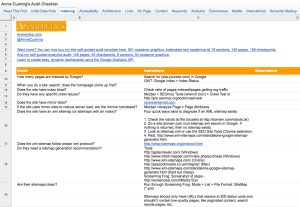Year after year, the impending holiday season seems to take us all by surprise, but we know the hospitality industry has been planning for it for months. It’s a season that entirely disrupts the regular patterns and habits of travelers and shoppers, subsequently impacting the workload and hours of the hospitality workforce. Coping with this annual spike in customer activity means navigating the challenges of hiring seasonal workers.
Increased Demand for Seasonal Workers
The demand for seasonal workers in hospitality is 10 percent higher this year than in 2015, but the national unemployment rate is lower, down to 4.9 percent from 5.1. Add to these data the fact that 90 percent of employers in the retail, restaurant and hospitality industries plan to hire extra employees for this year’s holiday season, and it’s clear that the marketplace is going to get seriously competitive.
According to a survey of 1,000 employers, the biggest challenges of this tight labor market are a lack of qualified workers and a lack of available workers, both of which result in high competition between similar and local companies that are hiring from the same pool.
In a marketplace where candidates are scarce, an optimized recruiting strategy is key. Employers should perform research into the best places to attract applicants, including online job boards, career sites, school job boards, social media, local newspaper and publication ads, networking, staffing agencies, and more.
Changing Labor Laws
There are two key changes in employment laws of which employers hiring seasonal workers should be aware. The first is the new overtime rule from the Department of Labor that goes into effect on December 1, 2016. With employers frequently extending holiday hours, it is crucial to stay aware of and be compliant with this regulation. Essentially, the rule requires that salaried employees who earn less than $ 47,476 a year will be paid time-and-a-half when working over 40 hours in a week. This threshold is up significantly from the previous cap of $ 23,660.
Employers should also be aware of the rise of minimum wages. Several states have new minimums that go into effect on January 1, 2017, affecting the tail end of the holiday season. In addition to these laws, there’s also an overall rise in wages occurring across industries, with an estimated 47 percent of employers reporting increased pay for seasonal workers this quarter.
These increases are likely a direct effect of competition for an increasingly constrained labor market, with employers trying to outbid each other for qualified candidates. Companies should perform some local market research and make any necessary changes to their compensation structure to attract (and retain) the most qualified seasonal workers in the hospitality industry. Other perks and benefits that may attract workers may include flexibility in workplace attire, more autonomy in scheduling, and generous workplace discounts.
Condensed Hiring Cycles
One of the biggest challenges for employers hiring seasonal workers in hospitality is the shortened hiring timeline. With holiday travelers and shoppers arriving whether companies are ready or not, the urgency to boost their workforce is pressing. Unfortunately, this often results in rushed interview processes, as well as other shortcuts in hiring and training procedures.
In particular, companies are more apt to skip background screening and reference checks when hiring seasonal workers. Although they have good intentions in doing so, the risks of skipping the background check far outweigh any benefits of speeding up the hiring process. Petty employee theft, workplace violence, or just plain incompetence are all undesirable outcomes that background screening may help employers avoid. Otherwise, the costs that can accrue as a result of these problems are substantial.
Likewise, reference checks with previous employers could help identify issues with a candidate, including missing shifts or being late to work, lacking experience, having a negative attitude on the job, and the like.
Business & Finance Articles on Business 2 Community(117)
Report Post






